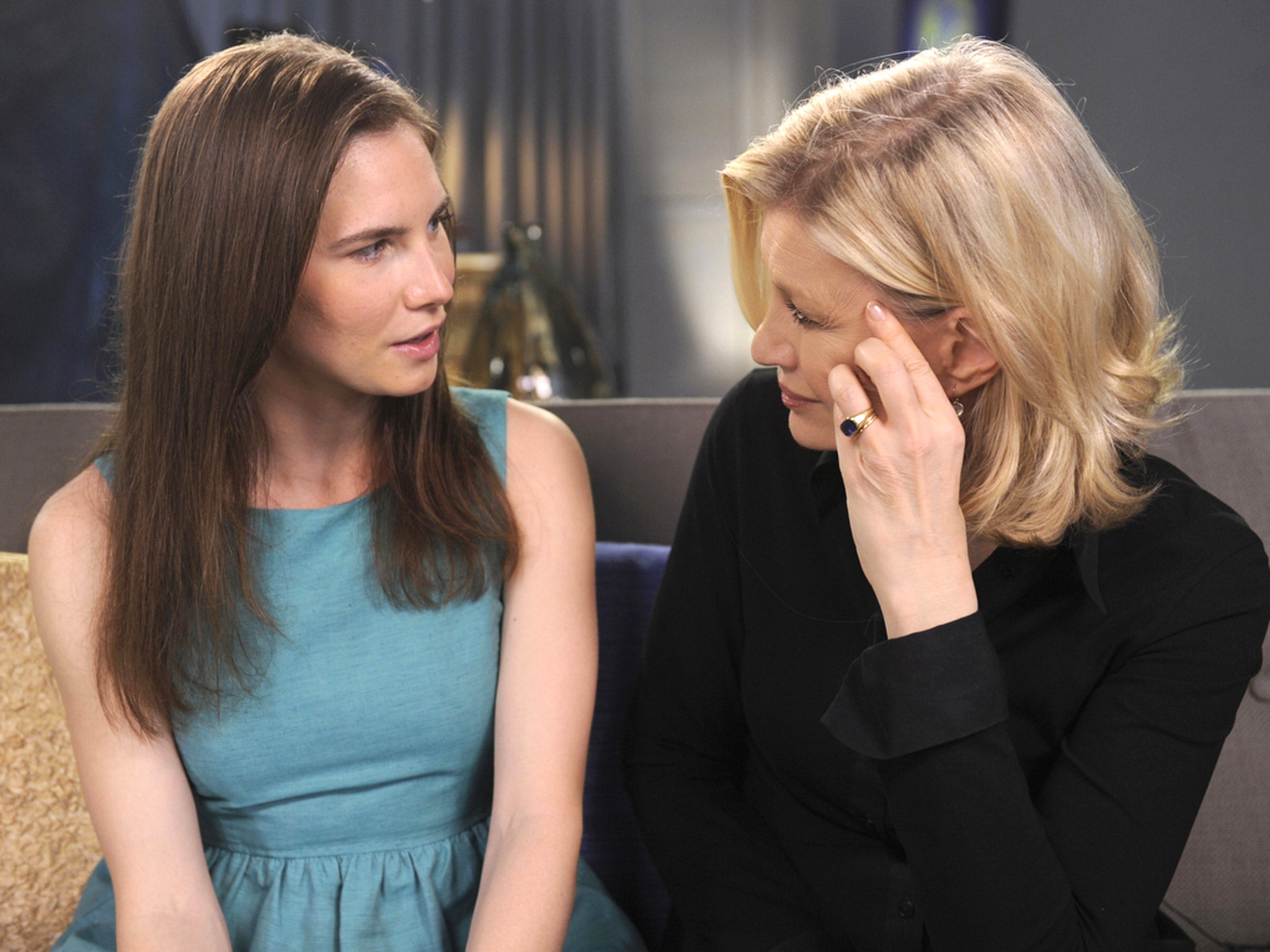Insert your reason here why Amanda Knox is guilty/innocent
This interview should have cleared up any lingering doubt...


Your support helps us to tell the story
From reproductive rights to climate change to Big Tech, The Independent is on the ground when the story is developing. Whether it's investigating the financials of Elon Musk's pro-Trump PAC or producing our latest documentary, 'The A Word', which shines a light on the American women fighting for reproductive rights, we know how important it is to parse out the facts from the messaging.
At such a critical moment in US history, we need reporters on the ground. Your donation allows us to keep sending journalists to speak to both sides of the story.
The Independent is trusted by Americans across the entire political spectrum. And unlike many other quality news outlets, we choose not to lock Americans out of our reporting and analysis with paywalls. We believe quality journalism should be available to everyone, paid for by those who can afford it.
Your support makes all the difference.Do you think Amanda Knox was guilty of murder? Surely only a dunderhead would fail to read the obvious signs from her appearance on American TV.
She is obviously as guilty as sin because:
1. She was evasive. Did you see the number of times she looked away from the camera, while explaining herself? That’s a dead giveaway, that is.
2. She looked a total slut. Her skirt went halfway up her thigh, her legs were without tights, her arms were bare, her neck, too. I’ve seen Bond girls with more clothes on.
3. She seemed kinda blank and emotionless at times, didn’t she?
4. She choked when answering Diane Sawyer’s questions. You could hear her nervously swallowing saliva. Classic guilt-leakage.
5. She said that awful thing about wanting Meredith’s parents to show her Meredith’s grave, the cheeky, heartless bitch.
But, then again, she’s obviously as innocent as a lamb because:
1. She was direct. Did you see how steadily her bright eyes maintained contact during Diane Sawyer’s questions?
2. She didn’t look like a sex fiend. She looked demure in her high-necked summer frock, with no jewellery. Not that this has much to do with murder.
3. She looked like someone hardly able to conceal a quivering mass of emotions – and, significantly, she was most weepy when talking about her family’s constancy, rather than her incarceration.
4. She choked when answering certain questions, specifically “Did you kill her?” and “Did you conceal information from the police?” She choked because these aren’t ordinary questions; they’re questions on which a life sentence hangs, questions she’d been asked 200 times before, and to which the secondary answer is, “What kind of person do you think I am?”
5. She said: “I really want to go see her grave, and right now I don’t feel I have the right to without the family’s permission.” Which sounded humble and sensitive to the family’s feelings – and reminded us that she was once Meredith’s best pal.
Some people still scrutinise poor Ms Knox’s face, body and demeanour as though guessing whodunnit in a Channel 4 police procedural. But can we actually know? Twenty-odd years ago, Joan Smith, in her excellent book Misogynies, described how routinely that crime investigations were botched because the police’s preconceptions about women stopped them from seeing evidence that stared them in the face. The current case has been spoilt by similar wild assumptions about what Ms Knox “must be like”. Her handsome but “blank” face seemed to incriminate her (too much like the Wicked Queen in Snow White.) Her failure to grieve all day for her friend Meredith damned Knox in many eyes, although few of us tend to mourn in an unbroken wail. The evidence that she was “a sexual thrill-seeker” made her, in judicious Italian eyes, a degenerate capable of anything.
We can now see more clearly the kind of girl she was when she went travelling: quirky, bright, not especially clear-thinking, keen to emulate the sexually “confident, free-spirited girls” who used to make the European Grand Tour; someone loving to her family, and appalled to be thought of as anything but thoroughly decent. The kind of girl who’d choose to spend the evening watching Amélie with her boyfriend. Not a girl likely to stab her best friend several times in the throat. What I saw in her eyes wasn’t murder or blood-lust; it was six years of grotesque unfairness experienced by a child.
Comments on this article have been closed for legal reasons.